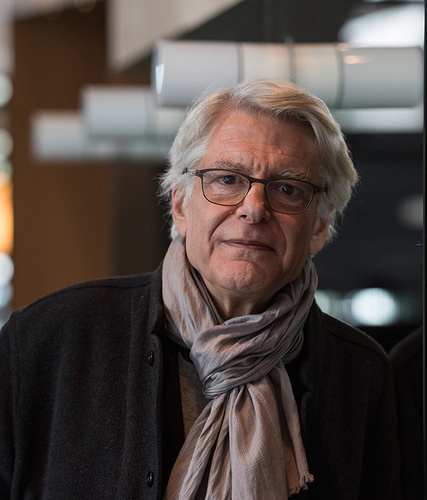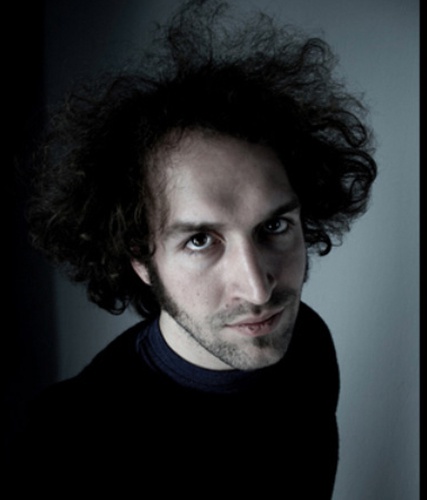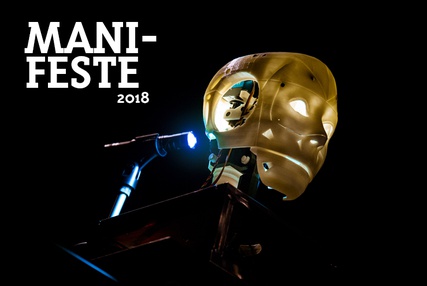Thinking Things
Thinking Things : matière à penser sur les objets pensants
Voilà sept ans que Georges Aperghis ne s’était plus frotté au théâtre musical, dont il est pourtant un inlassable réinventeur depuis près d’un demi-siècle. Certes, même dans ses œuvres purement musicales, le théâtre n’est jamais loin : « C’est ma façon de voir le monde, dit-il. J’y vois toujours des tensions se créer et, plutôt que de les calmer, j’essaie toujours de les pousser à bout. Naturellement, cela fait naître des situations archétypales de domination, de révolte… Il n’y a ni représentation, ni parole, ni personnage, pas même des scènes précises mais de vagues situations que seule la musique peut exprimer, comme une alchimie théâtrale et mouvante qui les rend palpables. » Certes, la voix et le texte sont loin d’être absents de sa plus récente production. Mais c’est la première fois de sa carrière qu’il se tient aussi longtemps éloigné de la scène…
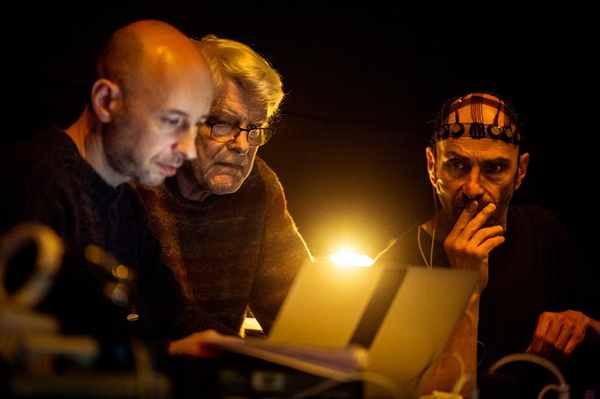 Pour ce grand retour, Georges Aperghis renoue également avec la technologie Ircam, en la personne d’Olivier Pasquet, qui avait guidé ses premiers pas dans les studios, voilà dix-huit ans, pour Machinations (2000). La nouvelle pièce, intitulée Thinking Things, peut d’ailleurs à bien des égards se voir comme le prolongement de Machinations, mais aussi de Luna Park (2011) : elle en reprend la structure de base du dispositif scénique et interroge, comme elles, la technologie et ses dérives. Toujours avec l’humour féroce et la distance qui le caractérisent : le propos, ici, n’est pas de dénoncer, mais de montrer et surtout de (se) jouer, au sens ludique du terme et avec l’insouciance sérieuse d’un enfant, de toutes ces technologies qui envahissent notre quotidien.
Pour ce grand retour, Georges Aperghis renoue également avec la technologie Ircam, en la personne d’Olivier Pasquet, qui avait guidé ses premiers pas dans les studios, voilà dix-huit ans, pour Machinations (2000). La nouvelle pièce, intitulée Thinking Things, peut d’ailleurs à bien des égards se voir comme le prolongement de Machinations, mais aussi de Luna Park (2011) : elle en reprend la structure de base du dispositif scénique et interroge, comme elles, la technologie et ses dérives. Toujours avec l’humour féroce et la distance qui le caractérisent : le propos, ici, n’est pas de dénoncer, mais de montrer et surtout de (se) jouer, au sens ludique du terme et avec l’insouciance sérieuse d’un enfant, de toutes ces technologies qui envahissent notre quotidien.
Après la place de la machine dans notre société contemporaine, puis la surveillance généralisée (digne de George Orwell), Aperghis s’intéresse à présent aux robots de toutes sortes, à tous ces objets pensants, qui lui fournissent bien de la matière à penser. S’inspirant autant de l’essai de Grégoire Chamayou La théorie du drone, que des vidéos militaires qui ont fuité çà et là, ou de ces cérémonies mortuaires prodigieuses que l’on consacre parfois aux robots au Japon – lorsque ceux-ci deviennent obsolètes ou ne fonctionnent plus –, Georges Aperghis imagine un théâtre musical à la limite du spectacle de magie, déconstruisant l’image des robots jusqu’à l’absurde, non sans égratigner au passage celle des hommes qui les ont conçus et y ont si souvent recours…
Les enjeux technologies
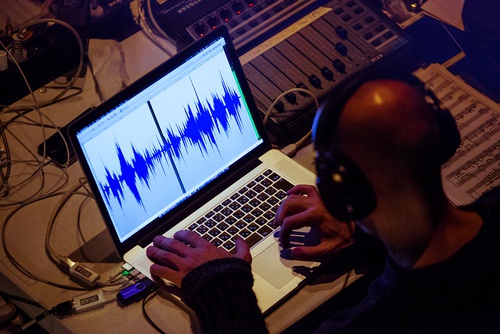 Comme souvent dans l’œuvre de Georges Aperghis, la voix et la vocalité font dans Thinking Things l’objet d’une attention toute particulière ici. Avec Olivier Pasquet, il prolonge les travaux réalisés pour Machinations ou Luna Park, sur les voix de synthèse et les polyphonies impossibles et sur les traitements vocaux – notamment pour donner une « voix » aux robots dont les discussions hallucinantes et hallucinées rythment la pièce. À l’inverse, comme pour mieux interroger la présence robotique dans nos vies, une partie de l’électronique est composée à partir d’échantillons sonores… d’imprimantes 3D ! Ces imprimantes 3D qui ont justement servi à construire les robots qui participent au spectacle.
Comme souvent dans l’œuvre de Georges Aperghis, la voix et la vocalité font dans Thinking Things l’objet d’une attention toute particulière ici. Avec Olivier Pasquet, il prolonge les travaux réalisés pour Machinations ou Luna Park, sur les voix de synthèse et les polyphonies impossibles et sur les traitements vocaux – notamment pour donner une « voix » aux robots dont les discussions hallucinantes et hallucinées rythment la pièce. À l’inverse, comme pour mieux interroger la présence robotique dans nos vies, une partie de l’électronique est composée à partir d’échantillons sonores… d’imprimantes 3D ! Ces imprimantes 3D qui ont justement servi à construire les robots qui participent au spectacle.
Lesdits robots ont été conçus par le plasticien Pierre Nouvel, qui réalise également certaines vidéos projetées au cours du spectacle : « Il s’agit ici de concevoir des éléments robotiques, et de penser leurs interactions possibles avec les humains, mais aussi avec l’espace, le son, la lumière ou l’image, dit Pierre Nouvel. […] Nous abordons les thématiques liées à la robotique ou à l’intelligence artificielle, au moyen de dispositifs qui utilisent certes des technologies actuelles, mais qui restent théâtraux. C’est paradoxalement ce qui donne beaucoup de force et de liberté artistique à ce projet. La technologie présente sur le plateau se retrouve comme augmentée par la théâtralité et la musicalité à laquelle ils sont confrontés. »
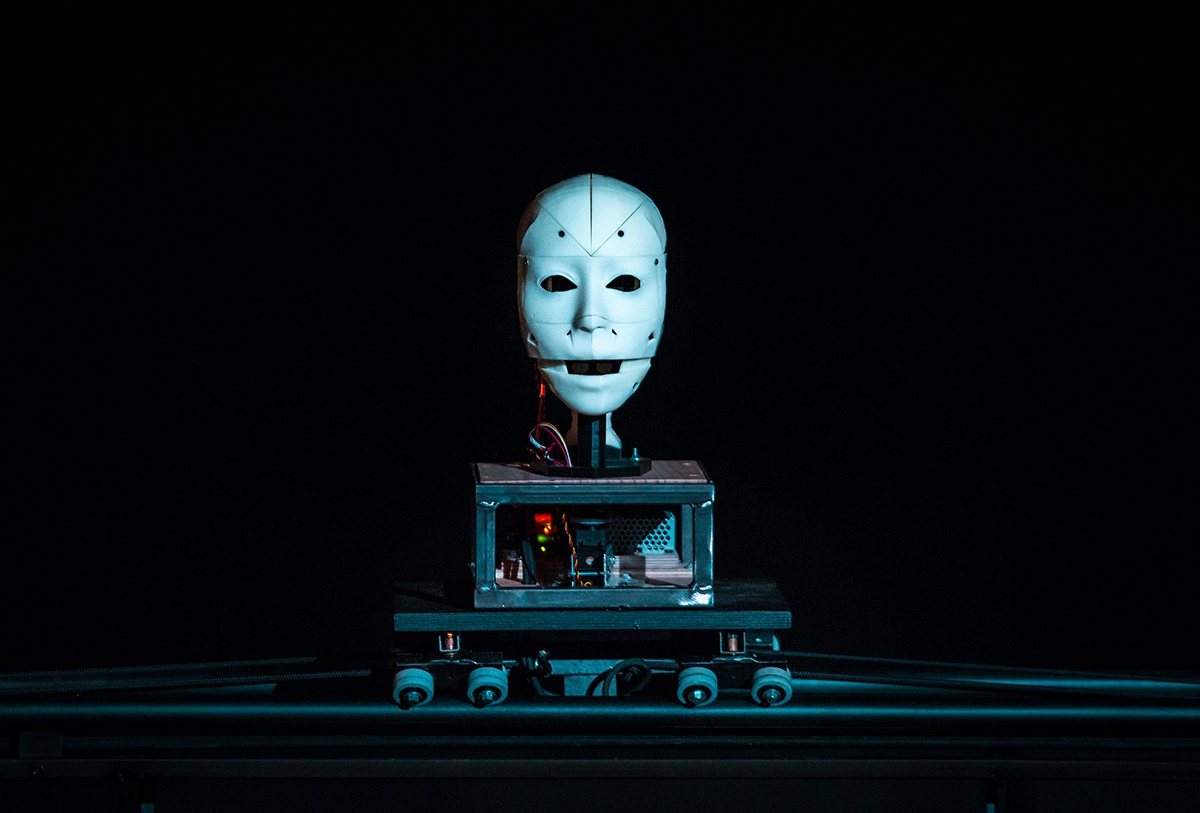
Photo 1 : de gauche à droite, Olivier Pasquet, réalisateur en informatique musicale, Georges Aperghis, compositeur et Richard Dubelski, comédien © Quentien Chevrier
Photo 2 : Olivier Pasquet, réalisateur en informatique musicale © Quentin Chevrier
Photo 3 : Tête du robot totem © Quentin Chevier
par Jérémie Szpirglas, journaliste et écrivain
Biographies
Georges Aperghis
Georges Aperghis (né en 1945) travaille depuis plus de trente ans à l’invention d’un théâtre musical qu’il définit ainsi : « l’envahissement du temple théâtral par le pouvoir ab…
Pierre Nouvel
Fondateur du collectif transdisciplinaire Factoid regroupant vidéastes, musiciens, graphistes, commissaires d'exposition, scénographes, Pierre Nouvel (né en 1981) réalise un travail de scénographie avec de nombreu…




